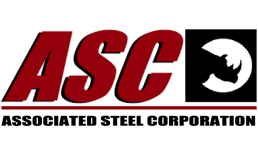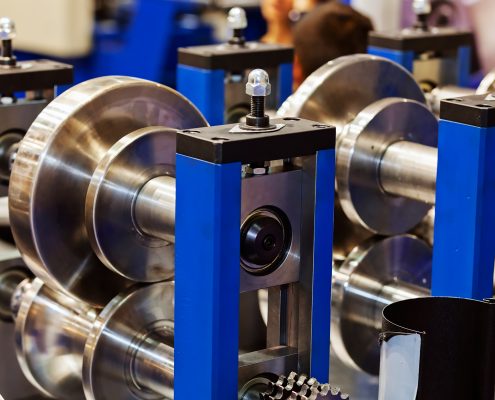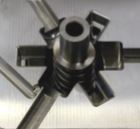Tool Steels
Krome-Die™
HIGH WEAR, AIR HARDENING, DECARB-FREE TOOL STEEL
Krome-Die is the “least deforming” of all general purpose die steels. Because of its high chrome and high carbon, it is the ideal material for many applications where abrasion is a key factor. Consider this when specifications call out for AISI D-2 type tool steel. Typical applications include: blanking dies, shears, cold drawing dies, cams, coining dies, forming rolls and bending dies. Call or email us for a quote.
In most applications, other than where impact and shock contribute to die failure, Krome-Die will rapidly become your Tool Steel of choice. Specify Krome-Die for extremely long run dies and die configurations where dimensional accuracy is demanded.
Water hardening tool steels are not recommended for thin sections or sharp corners. They are subject to more distortion than most other tool steel grades. Krome-Die’s dimensional stability makes it an excellent replacement for water hardening tool steel
Spacing
Key Features
100% Decarb-Free (Pre-Machined Oversize)
Least Deforming Tool Steel
Excellent Machinability
Excellent Wear Resistance
Good Deep Hardening
Galling Resistance At High Hardness
Typical Surface Condition*
- Ground Top and Bottom – (+.015”/+.035” oversize)
- Sides Saw Cut – (+1/8”)
- Length Saw Cut – (+1/8” oversize)
- Surface Finish – RMS 125 or better
*As delivered (pre-machined condition)
Spacing
Applications
- Shear Blades
- Punches
- Bending Dies
- Ring Gages
- Wire Cutters
- Header Dies
- Blanking Dies
- Cams
- Shredding Knives
- Roll Dies
- Threading Dies
- Coining Dies
Available Lengths
10/12 Ft Random Lengths and Custom-Cut-To-Lengths
Available Sizes
1/2″ up to 6″ Squares
Spacing
Thermal Treatment*
Annealing – Generally furnished annealed. 1,600°F/ 1,650°F, furnace cool (229 BHN average) Hold at temp 1.5/hrs per inch of greatest cross section. Cool slowly in furnace (20 degrees/hr) to 900°F. Note: If the part will require heavy machining, it is a good idea to first rough machine the annealed part with allowance. Then perform a sub-critical anneal at 1,200°F to 1,250°F (to relieve machining stresses) – slow cool and finish machine.
Forging – Heat slowly to 1,900°F/2,000°F, stop at 1650°F, cool slowly.
Hardening – Pre-heat slowly to 1,200°F/1,300°F, then to hardening temperature of 1,825°F /1,850°F,air quench to 150°F. Pack in inert material to retard the effects of de-carb. Typical work hardness Rockwell 58/64 “C”; as quenched surface hardness Rockwell 61/64 “C”. CAUTION: If over heated to 1900°F or higher, all High Carbon, High Chrome steels will shrink and lose hardness.
Preheating – 1200°F/1250°F is not required if you have performed the sub-critical anneal mentioned above.
Tempering Chart
@ 350/450°F typical hardness Rockwell “C” 63.
@ 500°F typical hardness Rockwell “C” 59.
@ 800°F typical hardness Rockwell “C” 57.
(Minimum time at tempering temperature is one hour per inch of thickness, even on thin sections. Heavier sections should be held a temperature sufficient for uniformity of temperature.) Do not normalize. Slight contraction in size when tempered below 900°F, and if overheated to above 1,900°F. Another temper at 950°F/1,000°F may restore the size. If not hardening in a vacuum furnace, prevent de-carb by packing in inert material.
* Above values are typical and are not guaranteed.


